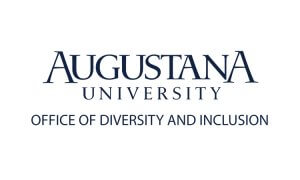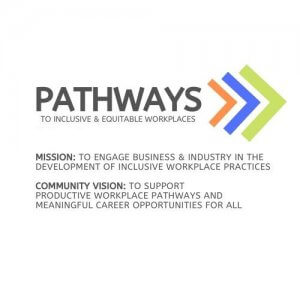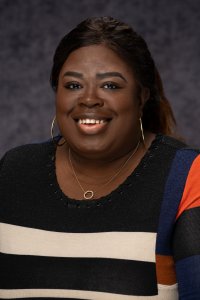Sioux Falls businesses make efforts to uplift diversity in the workplace
In the wake of George Floyd’s murder in Minneapolis, the Black Lives Matter movement has been a critical topic of discussion across the country—in homes, on college campuses, in the media and, of course, in the workplace.
The movement has sparked conversations about racism, privilege and bias, and it has compelled groups and individuals to address these issues in their day-to-day lives and operations.
Locally, numerous businesses and organizations are making concerted efforts to support and uplift underrepresented populations. They’re doing this through education, engagement and a commitment to creating inclusive environments for all employees, clients and students.
We spoke with a few of the leaders at the forefront of these efforts to learn more about the current environment in Sioux Falls and how it can continue to improve.
Augustana’s Office of Diversity, Equity, and Inclusion offers Diversity Advocacy Certification program
Willette Capers serves as Director of Diversity, Equity, and Inclusion at Augustana University, where she develops programming and events to create a more welcoming on-campus environment. 
Capers, who came to Sioux Falls from South Carolina, has a background in higher education administration and says she’s always had a desire to work with a focus on diversity. She’s currently completing doctoral research through Northeastern University on the impact and value for Black women in higher education.
At Augustana, Capers is the first person to be hired in this role. The type of programming she works on used to be housed under the multicultural office, but that expanded to create her role and office in early 2019.
As part of her role, Capers is certified to administer the Intercultural Development Inventory (IDI)—an assessment that determines a person’s level of intercultural competence.
“You have to learn where people are at in their mindset, and as I’ve been able to do these assessments across campus, I can tailor my education and events to meet people where they are,” Capers said.
In addition to administering the IDI, Capers has developed a 10-course diversity advocacy certification program, available to students, faculty and staff. Starting August 1, every search committee on campus will be required to include at least one certified diversity advocate. It’s part of an effort to ensure all candidates are treated with respect and to recruit in diverse places.
“We want to make sure we’re being as inclusive as possible when it comes to finding the best candidates,” Capers said.
The work Capers is doing at Augustana ranges from organizing events like movie nights, group reads, speakers and seminars, to working on systemic changes in the way students are admitted.
“Systemically, the ACT or SAT is not going to accurately depict the success a student is going to have in college,” she said. “We learn different things at different high schools depending on the neighborhood or the town, and low socioeconomics plays a large role in those issues, no matter what race you are.”
Ultimately, she says she wants to make people feel like they have a home on campus.
“It’s all about uplifting people and making sure that for my students of color, this is much their place as it is anyone else’s,” she said.
And if Capers’ students enter the workforce in Sioux Falls after graduation, she hopes they find an equally welcoming environment.
“There are financial benefits of living in South Dakota, from taxes to the ability to work and get a job—the employment rate is extremely high—and you can thrive here if you get the opportunity to,” she said. “It’s about getting people to open up and accept that we come from many different walks of life, and it’s okay to embrace other cultures.”
For more information, visit augie.edu/student-life/diversity-equity-inclusion.
Oxenham Group launches Diversity in Hiring Initiative
Bill McGuckin is the owner and founder of Oxenham Group, an executive search and recruiting firm. In June, he launched the Martin de Porres Diversity in Hiring Initiative, named for the patron saint of diversity and racial harmony.
It all began with a donation of $500 to the Thurgood Marshall College Fund that will recur every time Oxenham Group completes a high-paying, professional placement in which a racially diverse pool of applicants has been considered.
“We know that highly diverse teams are better, so how can we not just say that we support people but actually make an impact?” McGuckin said. “We can’t make our clients hire a diverse workforce, but if they at least agree to interview diverse candidates, we’re providing that exposure to people.”
To achieve that goal of increased interviews for diverse candidates, McGuckin will advise and challenge his clients on the topics of diversity and inclusion in the workplace.
“As I mature and learn how to be a business leader, I’m exposing myself to more diverse teams, and I’m still learning the importance of this every day,” McGuckin said. “It enriches us, gives us better perspective and helps us avoid falling into groupthink.”
Oxenham Group aims to make high-paying positions—jobs that pay over $75,000—available to all professionals, particularly those who may not have had as many opportunities for upward mobility. McGuckin emphasizes that this is a full-time commitment and not just a temporary initiative.
“We launched the initiative on June 16, but this is ongoing,” McGuckin said. “I want it to be part of the fabric of what we’re doing, not just a short-term thing.”
For more information, visit oxenhamgroup.com.
Pathways program introduces employers to inclusive workplace practices
Kira Kimball serves as Chief Innovation Officer for Marsh & McLennan Agency (MMA) here in Sioux Falls, and it’s a role that allows her to be deeply involved in her community. 
“It’s really about social and cultural innovation, how we show up in the marketplace and in our communities,” she said. “Historically, our organization has really had a heart, and when I joined a decade ago, part of my vision was to be able to give back to the community.”
Prior to her career in the insurance industry, Kimball spent a decade in higher education where she spent time training on diversity, equity and inclusion. Now, she’s been given the opportunity to connect the two experiences through her role at MMA and the development of a community program.
“MMA is really stepping into this because we want to disrupt our industry and show up differently,” Kimball said. “We’re very aware that we are white male-centric in our organization. There’s no judgment there—it’s just the reality—but it’s been super cool because for the longest time I’ve been thinking about how to bring value in this area with my education.”
Kimball leads MMA’s national diversity, equity and inclusion team, and over the last year and a half, she has stepped up to engage with the community in Sioux Falls on the topic of inclusive workplaces. Initially, Kimball hoped to move forward with a model set forth by the National Diversity Council, but when that didn’t work out, she pivoted to create a grassroots coalition—Pathways to Inclusive & Equitable Workplaces.
“This work demands passion and tenacity, so that’s when I started to be a community organizer for all intents and purposes,” she said.
While Kimball has worked to implement inclusive recruiting strategies and unconscious bias training within MMA itself, Pathways provides an outlet to share this knowledge with the greater community.
Kimball has big dreams for the impact Pathways can have on the Sioux Falls community, and she began with a series of six webinars featuring local experts on topics such as cultural competencies, unconscious bias, and inclusive leadership. The final webinar in the series, “Enhancing Your Employer Brand,” will take place on August 11. Register for the free event here.
The webinars are open to everyone, and Kimball especially encourages civic leaders, individuals, and businesses to attend.
“We’re all coming together because we’re committed, we’re learning, and we want transformational change in our community,” Kimball said.
For more information and to be the first to hear about upcoming events, visit Pathways to Inclusive & Equitable Workplaces on Facebook.
